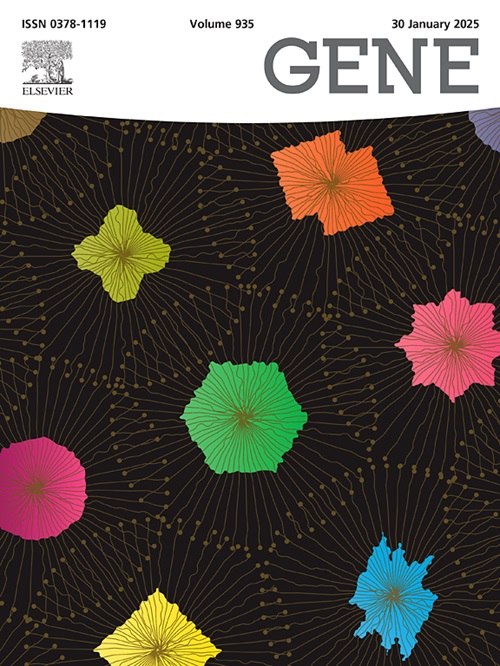欧洲血统人群铍病易感性的全基因组关联研究和HLA基因分型
IF 2.4
3区 生物学
Q2 GENETICS & HEREDITY
引用次数: 0
摘要
工作场所接触铍可导致铍致敏(BeS),这是一种细胞介导的免疫反应,可发展为慢性铍病(CBD),一种肉芽肿性肺部疾病。DPB1-E69与CBD和BeS高度相关,尽管DRB1-E71也可能是缺乏DPB1-E69的危险因素。目的本研究1)利用全基因组关联研究(GWAS)方法鉴定与CBD/BeS相关的新遗传变异;2)阐明DRB1-E71与DPB1-E69联合的作用。方法对1626例无病的BeS、CBD和铍暴露者进行GWAS和HLA分析。结果编码E69的密码子的第1个碱基rs1042140与CBD和BeS相关。我们还在4号染色体上与CBD和BeS相关的SRIP1附近发现了两个单核苷酸多态性(snp), rs56011217和rs72636334,与rs1042140无关。HLA等位基因DRB1*04:04(非E71)和DQB1*06:04与CBD和BeS显著相关,不依赖于rs1042140。结论DPB1-E69和DRB1-E71携带者单独或共同发生CBD或BeS的风险均较高,且DPB1-E69状态的影响高于DRB1-E71状态。DRB1-E71也会增加没有DPB1-E69的受试者的风险。我们的研究也提示,除了HLA, SRIP1在慢性铍病的发病机制中也应该被研究。本文章由计算机程序翻译,如有差异,请以英文原文为准。
Genome-wide association study and HLA genotyping for beryllium disease susceptibility in a European descent population
Background
Workplace exposure to beryllium can result in beryllium sensitization (BeS), a cell-mediated immune response that can progress to chronic beryllium disease (CBD), a granulomatous lung disease. DPB1-E69 is highly associated with CBD and BeS, although DRB1-E71 may also be a risk factor in the absence of DPB1-E69.
Objective
This study 1) identified novel genetic variants associated with CBD/BeS using a genome-wide association study (GWAS) approach and 2) clarified the role of DRB1-E71 in conjunction with DPB1-E69.
Methods
We performed GWAS and HLA analysis on 1626 subjects with BeS, CBD and beryllium exposure without disease.
Results
We found that rs1042140, the first base of the codon that encodes E69, was associated with CBD and BeS. We also found two single nucleotide polymorphisms (SNPs), rs56011217 and rs72636334, near SRIP1 on chromosome 4 associated with CBD and BeS independent of rs1042140. HLA alleles DRB1*04:04 (non E71) and DQB1*06:04 were significantly associated with CBD and BeS independent of rs1042140.
Conclusions
We found both DPB1-E69 and DRB1-E71 carriers have a higher risk of CBD or BeS both independently and jointly, with DPB1-E69 status having higher impact than DRB1-E71 status. DRB1-E71 also increases the risk in subjects without DPB1-E69. Our study also implies that beyond HLA, SRIP1 should be investigated in chronic beryllium disease pathogenesis.
求助全文
通过发布文献求助,成功后即可免费获取论文全文。
去求助
来源期刊

Gene
生物-遗传学
CiteScore
6.10
自引率
2.90%
发文量
718
审稿时长
42 days
期刊介绍:
Gene publishes papers that focus on the regulation, expression, function and evolution of genes in all biological contexts, including all prokaryotic and eukaryotic organisms, as well as viruses.
 求助内容:
求助内容: 应助结果提醒方式:
应助结果提醒方式:


